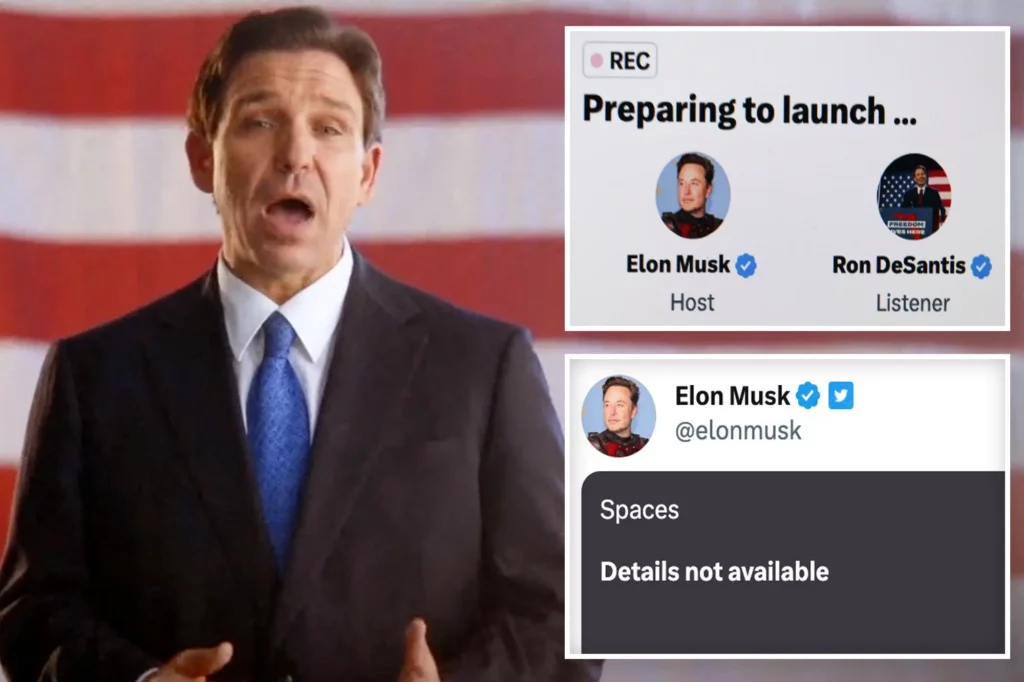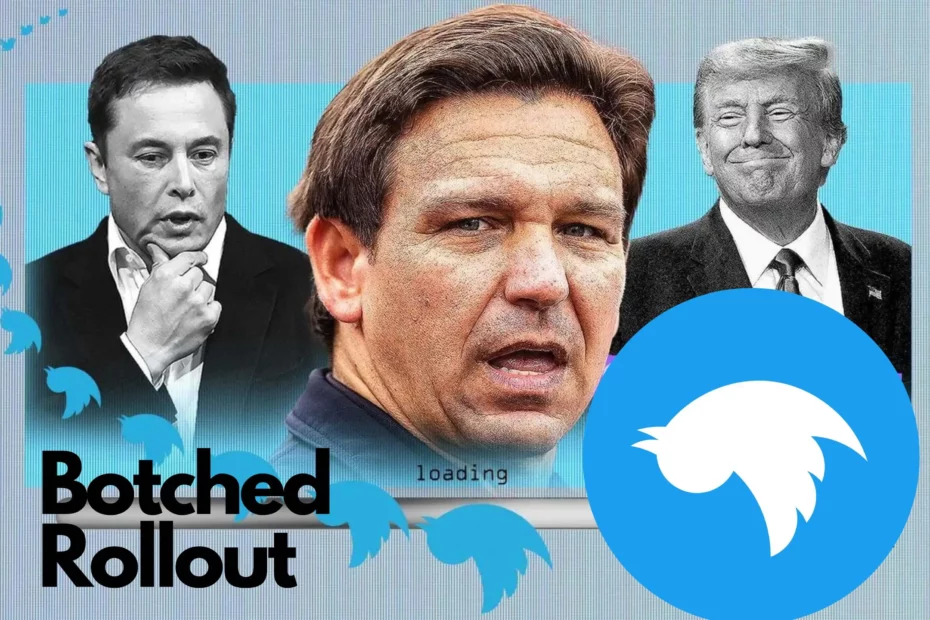Technical Failures Overshadow DeSantis’ Presidential Campaign Announcement
Florida Governor Ron DeSantis’ highly anticipated presidential campaign launch on Twitter Spaces turned into a glitchy affair, leaving the candidate scrambling to recover from a botched first impression. The choice of an audio-only venue for the announcement proved to be a risky move, as technical failures marred the event and overshadowed DeSantis’ intended message.
It was a gamble, and the first 15 to 20 minutes were marred by feed interruptions, disconnections, and a general air of confusion. It was a setback for a candidate known for his expert organization and media savviness. Critics argued that the choice of an untested Twitter technology, which had not been used with such a wide audience before, was bound to lead to problems.
Radio host Erick Erickson, acknowledging the mishap, emailed supporters, stating, “It was bold. It turned out to be a mistake. It is recoverable. But it is a reminder that some things should be under full control of the candidate, particularly the launch day.” The governor’s attempt to present himself as a competent alternative to the chaotic presidency of former President Donald Trump was undermined by the disorderly nature of the announcement, as DeSantis, along with Elon Musk and moderator David Sacks, experienced various technical difficulties.

Desantis Statement:
“Hi, this is Governor Ron DeSantis. I’m running for president of the United States to lead our great American comeback. We announced that on Twitter spaces earlier tonight and it broke the internet because so many people were excited about being on the Twitter space,” DeSantis said in a hastily-recorded video that doubled as a fundraising pitch.
The headlines on Thursday morning following the event focused more on the technical failures than DeSantis’ triumphant entrance into the race, potentially forming a negative narrative that contradicts his campaign’s core message. However, there were still some positive aspects amidst the chaos. DeSantis managed to raise an impressive $8.2 million within the first 24 hours following the launch, positioning him as the main challenger to former President Trump in the 2024 Republican presidential race.
While the fundraising haul demonstrated the enthusiasm surrounding DeSantis’ candidacy, it is worth noting that his campaign will face challenges due to strict donation caps. A super PAC supporting DeSantis plans for a $200 million budget but faces difficulties in raising campaign funds. Despite the uphill battle of surpassing Trump’s popularity in the GOP primary, DeSantis’ allies are working to match the scale of his challenge. The pro-DeSantis super PAC, Never Back Down, aims to employ over 2,600 field organizers by Labor Day.
However, the glitchy start to DeSantis’ campaign raises questions about its long-term implications. The audio-only format of the announcement deprived the campaign of visually appealing video clips and soundbites that could have resonated with the public in the days following the launch. Critics described DeSantis’ message as “robotic” and “rehearsed,” perpetuating the claims that he lacks the necessary presidential charisma to connect with voters face-to-face.
Despite DeSantis’ immense popularity in Florida, where he won re-election by a significant margin, translating that support into a successful national presidential run has proven challenging. The Twitter Spaces debacle announcement further compounds these obstacles. The big question remains: will the impact of the technical failures endure or fade away in the coming weeks and months?
In conclusion, Governor Ron DeSantis’ campaign launch experienced a rocky start due to technical failures and a lackluster delivery. While the fundraising numbers demonstrated strong initial support, the overshadowing effect of the glitches and criticisms regarding DeSantis’ performance has cast doubts on his ability to break away from the pack.
As the campaign moves forward, DeSantis faces an uphill battle in proving himself as a competitive alternative to former President Trump and overcoming the challenges of translating local popularity into a successful national bid.
